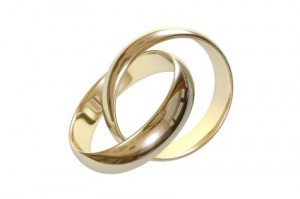Straight Couple Suing for Right to Enter Civil Unions
A straight couple in the UK is suing the government for the right to enter into a civil union, which the government of the UK reserves for same-sex couples. Much like some U.S. states, civil unions in the UK apparently provide most or all of the rights and responsibilities to same-sex couples that marriage provides to opposite-sex couples. And, like most U.S. states that have them, civil unions in the UK are exclusively reserved to same-sex couples.
If a case like this comes up in a U.S. state with a similar arrangement to the UK (California being the big one), which seems inevitable, it’s certain to raise some thorny constitutional issues, especially if the Supreme Court, in the interim, makes a definitive finding that sexual orientation is a “suspect classification” – making discrimination based on sexual orientation by the government nearly impossible.
 So, why would a straight couple want to enter a civil union instead of a marriage? Well, there are many reasons. First of all, in the Western world, “marriage” is a term loaded with religious implications. 2 people who love each other, and happen to be atheists or agnostics, might not want to convey any impression that they’re seeking religious validation for their relationship.
So, why would a straight couple want to enter a civil union instead of a marriage? Well, there are many reasons. First of all, in the Western world, “marriage” is a term loaded with religious implications. 2 people who love each other, and happen to be atheists or agnostics, might not want to convey any impression that they’re seeking religious validation for their relationship.
Or perhaps they have already made some public commitment to one another before friends and family, and simply want the legal security that comes with a marriage, without all the pomp and formality associated with it. So, naturally, they seek out an arrangement that, in theory, provides this.
In the U.S., the vast majority of states do not have same-sex marriage. There are only 6 jurisdictions in the U.S. that do: Massachusetts, New Hampshire, Vermont, Iowa, Connecticut, and the District of Columbia. A larger number of states (though still a fairly small minority) offer some form of “civil union” or “domestic partnership” – the terminology varies between the states – which offer most, and in some cases all, of the rights and responsibilities of marriage, while going by a different name. Most of these states reserve civil unions for same-sex couples, and opposite-sex couples above a certain age (usually 60 or 65).
As far as I can tell, no straight couple in the U.S. has yet sued for the right to enter a civil union as opposed to a marriage. However, it seems like it’s going to happen sooner or later. When this happens, the case will raise some irresistibly interesting legal and policy issues.
First, of course, is the issue of equal protection under the law, which the 14th Amendment explicitly requires states to provide to all citizens. Furthermore, such a case might attract supporters along a wider segment of the political spectrum. While most people who identify as liberals oppose any government discrimination based on sexual orientation, it’s typically discussed in the context of discrimination against homosexuals. However, on a purely intellectual (though, admittedly, not emotional) level, discrimination against heterosexuals in the same basis should be just as offensive to them.
Also, conservatives tend to get really rankled about “reverse discrimination” (a term I really don’t like, but that’s a topic for another post), and “special privileges” for minority groups. I’ve never heard an explanation about how equal treatment under the law is a “special privilege,” but that’s how a lot of people view marriage equality, for whatever reason.
The extent to which I believe either of these positions have merit is irrelevant here. What matters is that, in the U.S., a lawsuit like this would probably garner support from liberals and conservatives alike.
However, there’s a big “unless” there: a straight couple in the U.S. could conceivably argue that marriage, in the Western world, has an inherently religious underpinning, and that for states to sanction marriage (as opposed to a purely civil arrangement) is a violation of the Establishment Clause of the First Amendment. It would actually be a serious argument that marriage itself is unconstitutional. That’s a pretty out-there position, and will turn lots of people off. Unlike allowing more people to marry, this really would be a direct “assault on the institution marriage” that the Religious Right loves to howl about.
Obviously, anyone who wants to bring a similar lawsuit in the U.S. (which, as I mentioned earlier, seems inevitable), will have to tread lightly. Marriage-like benefits for same-sex couples are already controversial in the U.S., and this would definitely throw another wrinkle into the controversy, and how the public and the various policy players would respond is unpredictable.
However, if a straight couple in the U.S. is successful, it could conceivably pave the way for greater marriage equality. Only time will tell.


Comments